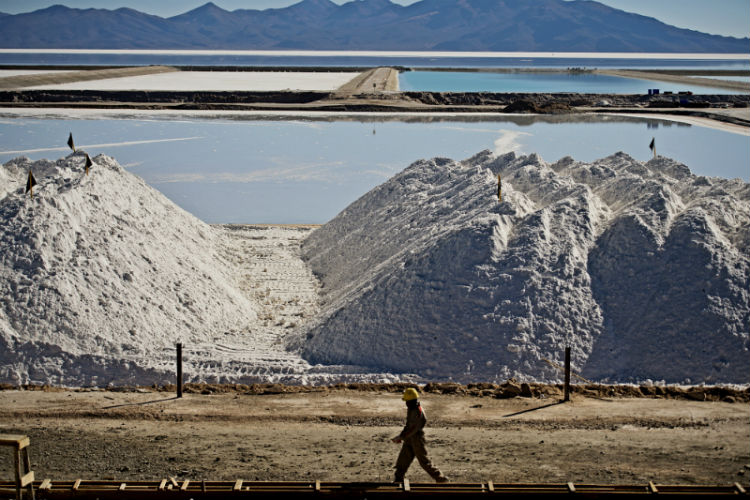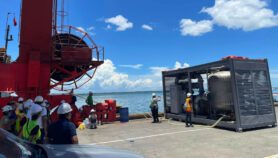Send to a friend
The details you provide on this page will not be used to send unsolicited email, and will not be sold to a 3rd party. See privacy policy.
[SANTIAGO] Argentina, Bolivia and Chile are preparing to take advantage of the abundant lithium beneath their salt flats to produce lithium batteries, but experts disagree on how to get more economic benefits out of the resource.
Chilean and Argentine technicians have participated in the design of lithium factories in each country, while Bolivia has hired a Chinese firm to open an experimental lithium battery plant.
Foreign investment in the exploration and extraction of lithium resources in these three countries, which together hold 85 per cent of the world's known reserves, is also increasing: two of the four large global lithium production companies (SQM and Rockwood) are in Chile, and FMC is in Argentina. In Bolivia, the industry is almost artisanal.
“One year of lithium sales are equivalent to ten days of copper sales in Chile.”
Jaime Aleé, University of Chile
Demand for lithium has increased considerably thanks to the growing production of electric and hybrid cars that use lithium batteries. Mobile phones, computers, glass, ceramics, lubricant greases, polymers and drugs are among other products that use lithium.
In Chile, the US company Rockwood Lithium, associated with the Chilean Corporation for the Promotion of Production, started in 2016 an investment close to US$600 million to increase its current production of lithium salts of technical grade and lithium batteries, and to develop technology for producing lithium hydroxide from brine.
This will enable Chile to double its production of lithium components in five years. As a result the government will receive an additional income of US$2.7 billion between 2017 and 2043.
Rockwood will also invest up to US$12 million a year into Mining and Solar Technology Development Centers, which will develop technologies such as desert salts that store copper and solar energy for 24 hours.
Under the agreement, Rockwood will also have to sell up to 25 per cent of its production at a preferential price to manufacturers of products such as cathodes or solar lithium.
In Argentina, the national technology company Y-Tec will invest US$60 million in a lithium-ion cell factory that will open in 2018, and will conduct research into lithium-ion cells for batteries with the Italian FAAM Energy Saving Battery.
Jaime Aleé, a researcher at the University of Chile, believes that lithium resources are not a panacea for the country’s economic development. “One year of lithium sales are equivalent to ten days of copper sales in Chile,” he tells SciDev.Net. "It is not a profitable business even if more expensive products such as lithium hydroxide, cathode compounds of battery cells, cathodes and cells are exported.”Neither does he bet on the country producing more industrial products containing lithium. "In many cases, countries that produce certain commodities have no related industries: with its oil, Finland did not manufacture cars but created Nokia," he says.
However, Williams Calderón of the University of Chile believes that the value of lithium is set to increase through development of secondary products and industries, to integrate the metal into other products and technological devices.
This piece was produced by SciDev.Net’s Latin America and Caribbean desk.














